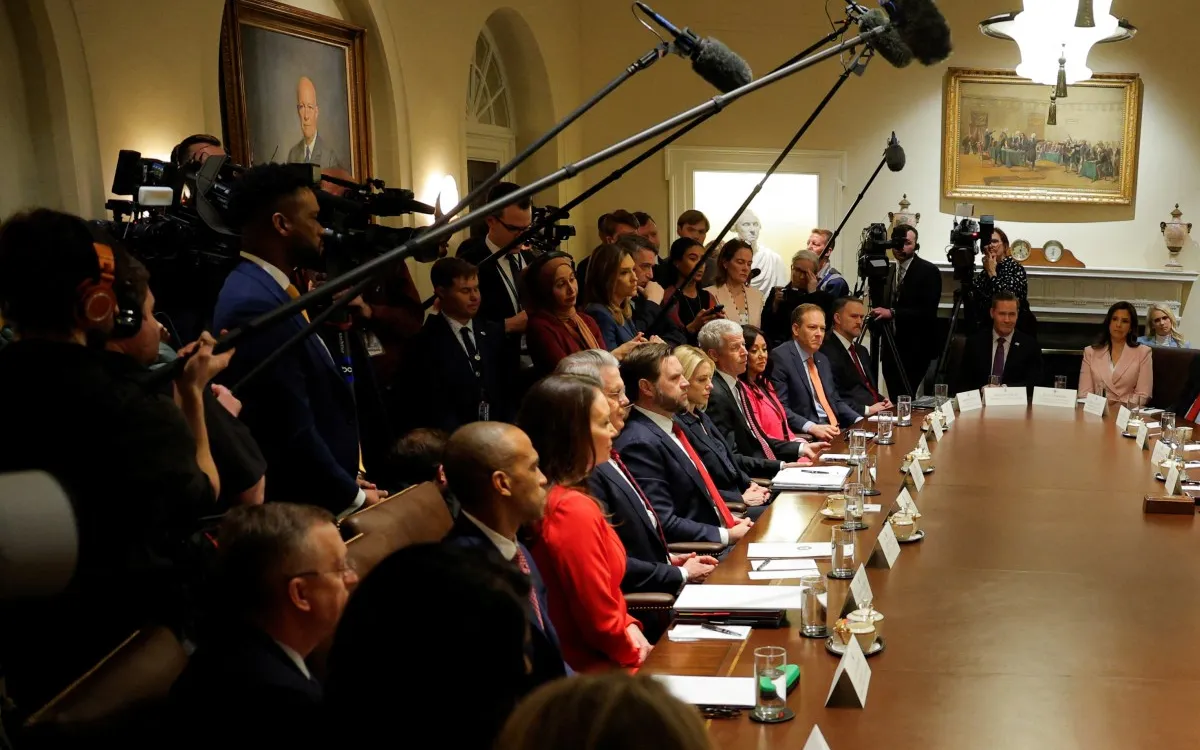
United States President Donald Trump convened the first cabinet meeting of his second term, with notable figures such as Secretary of Commerce Howard Lutnick and Secretary of State Marco Rubio attending. However, the presence of billionaire Elon Musk stirred controversy. Musk, wearing a "tech support" T-shirt, stood aside during the public portion of Wednesday’s meeting, highlighting his influence in the Trump administration.
Musk, now head of the Department of Government Efficiency (DOGE), defended his role in modernizing government technology. DOGE replaced the US Digital Service, absorbing its workers. Musk described his function as "humble tech support," emphasizing the department's focus on updating government systems. However, DOGE's role in reducing federal spending and workforce has faced criticism, with 21 employees resigning over concerns about data security and public service dismantling.
Musk doubled down on a contentious demand for federal employees to submit a weekly five-point accomplishment report, threatening terminations for non-compliance. Labor rights advocates criticized this as arbitrary and potentially illegal. Musk's comments at the meeting, suggesting non-responsive employees might be deceased, sparked further outrage and confusion.
President Trump introduced a proposal for a "gold card," a $5 million alternative to green cards, offering a fast track to US citizenship. Critics argue this could be exclusionary, benefiting only the wealthy. Trump, however, believes it will attract talented workers and generate revenue, likening it to a signing bonus for top companies like Apple.
The US is approaching deadlines for imposing tariffs on Canada and Mexico, with Trump citing border security concerns. Although initially set for March 4, Trump hinted at a new April 2 deadline during the meeting. Commerce Secretary Lutnick suggested further delays if the neighboring countries satisfy US demands.
Trump discussed US-Ukraine relations, announcing a deal for access to rare earth minerals. He downplayed security commitments, suggesting US presence in Ukraine would deter aggression. Despite his peace efforts, Trump acknowledged potential challenges in negotiations with Russia, insisting on concessions from President Putin.
Throughout his term, Trump has sought to assert US interests globally, including controversial suggestions about Gaza. His approach to international diplomacy continues to attract scrutiny and debate.